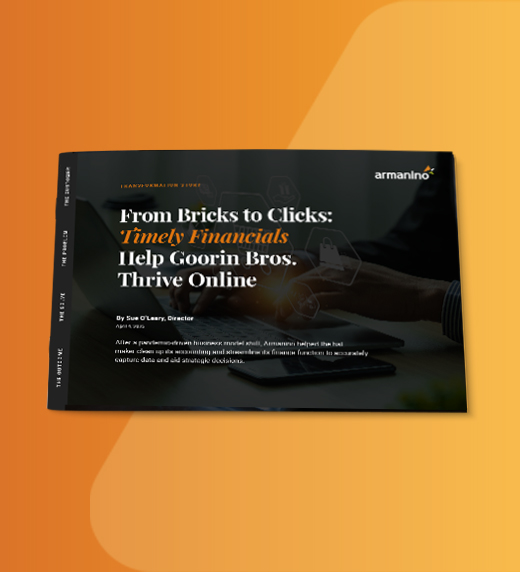
If you feel caught in the whirlwind of accounting and reporting requirements associated with ever-evolving regulations for fund administration, you're not alone. It's why many private equity (PE) and real estate fund managers have shifted their business models to include outsourced fund management.
Fund administration's complexity, technology overhead and need for specialized talent are what often pushes the decision needle to outsourcing. But third-party fund admin isn't always the best-case scenario. The timing might not be right, depending on economic and internal factors like how nimbly your team can access data for deals. And, outsourcing still requires preparation, relationship management and a clear delineation of responsibilities.
To evaluate which avenue is best for you — keeping your fund administration in-house, working with a third-party provider or some mix of the two — consider these points.
What do your clients want in communications, oversight and reporting? It's a delicate balance. You may want to control the reporting, communications and financials. But investors may see this differently.
Consider what makes your fund attractive to investors. While you may still want to keep investor relations in your court, financial oversight and reporting may become too complex for in-house efficiency. An outsourcer can relieve some of the administrative burden of regulatory financial disclosures, tax reporting, audit reporting and fund reporting, and improve investor confidence.
In the institutional LP space, using a third-party administrator to manage financial oversight has long been part of the due diligence DNA for fund managers. That mindset has trickled down to large family offices and IRAs over the past few years because it adds safety and security to have more individuals in the room, particularly from a treasury standpoint.
Outside of having an LP or significant investor require you to outsource, you may still want to keep your fund administration in-house. When your team wakes up every day thinking about your fund, you have an advantage in communication, knowledge and agility that you may not get with a third-party relationship.
A third-party administrator is still a vendor, and you must work within their service delivery turnarounds when you need financial data for a deal. And deals often move rapidly in the private equity and real estate spaces, meaning you need information quickly. Having the team in-house means you can redirect or refocus efforts to get the data you need right now.
However, as your fund expands, you may want to add outsourced financial oversight to your considerations list because there's a cost involved in keeping it in-house. Fund accounting and investor reporting are typically absorbed into the management team's expenses when you administer the fund yourself. The minute you hire a third-party administrator, the fund pays its own way for those expenses.
Are you considering fund expansion into less familiar jurisdictions or global markets? This can bring unfamiliar regulatory requirements, cultural nuances and operational complexities.
An outsourced fund administrator can equip you with the expertise, local connections (through their network of service providers) and risk management you'll need to expand your fund's footprint into less familiar territory. They can also offer a flexible model as operational needs fluctuate, which may stabilize costs.
If you keep this function in-house, you may have to add specialized (and more costly) staff to meet the new requirements.
Your fund management team may wear many hats, creating investment strategies and fundraising on top of handling middle- and back-office functions. As you grow and scale, does this combination of growth and management tasks help you or hurt you? What are your staffing, technology and operational needs to achieve growth?
As demands from investors and regulators increase, your staff may feel pulled in too many directions. An inside finance and operations team can handle the reporting and compliance requirements up to a certain point. But what happens when they're stretched too thin?
If your firm is growing rapidly and you're struggling to keep up with regulatory requirements, finding knowledge gaps, not getting to everything investors need or having trouble finding the right talent in your backyard, a third-party admin may help.
A staffing decision point on when and whether to outsource fund administration often occurs when you add a new investment vehicle. Also, if your investor base is becoming more sophisticated (meaning you've expanded beyond friends and family and high-net-worth individuals), you may need to evaluate the third-party administration option.
What would happen if you had someone else perform general ledger maintenance, accounting, monthly reporting, reconciliations, financial and statutory reports, investor management, distributions, waterfall calculations and corporate governance for you?
Investors expect real-time and historical access to data insights alongside risk mitigation. If you still rely on spreadsheets, standard general ledger software and manual processes, you may be unable to deliver on these expectations.
But you may be wary of the cost and time investment required to add a technology platform that streamlines data access, improves transparency, eliminates manual data entry and manipulation, reduces risk and gives clear financial visibility. It takes planning, infrastructure and people resources to make this leap.
The answer to this question depends on your fund's structure, readiness and investor expectations. Keeping fund management in-house may make sense this quarter or even this year, but onboarding a fund administrator can help you overcome technology hurdles quickly and cost-effectively.
While some early-stage fund managers have licensed products to help them with financial reporting and forecasting, others have made it work with standard Excel workbooks. And when you're just getting started, this can be fine. However, technology scale is often the trigger for outsourcing fund administration.
Fund administrators typically use best-in-class technology to satisfy investors' call for transparency and risk mitigation. But you have to be ready to take on the time and data collection needed to make a technology transformation. It's not just plug-and-play.
Another key consideration is the cost burden of the software. Technology isn't usually a cost you can pass on to the fund if you're self-administrating. It's a management cost and is often the key to starting the outsourcing conversation. And, it's a good decision point because third-party administrators already have best-in-class tools in place to help you succeed, and you can pass the administration costs on to the fund.
In-house fund administration provides direct control over administrative functions, data management and service delivery. In essence, you know who is doing what, control the communications and ensure alignment with organizational objectives.
But, if your fund grows rapidly or adds complexity, you take on potential technology deficits, data security shortfalls, internal expertise gaps and risk exposure. That's a lot to add to your plate and still deliver consistent client service. In-house administration may also limit your fund's ability to compete effectively with peers who use external expertise and technology solutions to extend operational efficiency.
In many cases, outsourcing can help you manage investor expectations, streamline operations and reduce costs. By taking over middle- and back-office functions, third-party administrators allow you to support your investors with reports, statements and other documents more efficiently than you can on your own.
The outsourcer can also use best-in-class technology to automate many of your manual processes (by digitizing statements and disclosures), standardize reporting (with an investor portal) and give investors more data visibility (with performance dashboards and access to real-time and historical data). They'll also have cybersecurity, risk management and audit processes in place to help you build investor trust.
The time and focus components are often the outsourcing decision triggers for fund CFOs. You most likely have a lean team performing investor-facing work such as due diligence part of the time and then flipping their hats to validate accounting records, report to investors and bless the distributions. It's okay to operate like this — for a while. But always looking in the rearview mirror may be costing you time that you could concentrate on finding opportunities.
You should be looking ahead at capital sources and deal structures so you can be proactive with your fund's future. Outsourcing may help take the stuff you “have to do” off your plate so you can focus on the stuff you want to do.
Outsourcing your fund administration doesn't have to be an entirely outside engagement. Sure, institutional investors will require you to have the financial oversight of a third party. But that doesn't mean you have to hand over the keys completely.
In fact, you can customize this function as you grow and scale. For instance, fund managers often outsource their financial reporting and fund accounting yet leave investor relations up to their internal team. Many hand over the administrative functions of investor communications to their vendor — onboarding new investors, preparing documents and supporting their investor portal access — while they build the relationship.
Sometimes, the fund manager gets through the financial close and has the third-party admin pick up the investor statements, allocations, distributions and reporting, so they can prioritize more client-facing work.
Whatever you outsource, it's important to remember that your administrator and investors need a clear point of contact for the fund. Someone within your organization has to own the day-to-day communication channel between the investors and the third-party fund administrator. When done right, this relationship will feel like an extension of your team, and you'll want to invite your fund administration squad to the holiday party.
Not sure what level of collaboration could best support the unique needs of your fund? Find out how Armanino's fund administration experts can help you build a customized fund admin strategy that reduces costs, increases regulatory compliance, enhances risk management and builds investor trust.
Hand off the complexities of fund administration to our experts, so you can stay focused on your portfolio and reinforce investor confidence.


